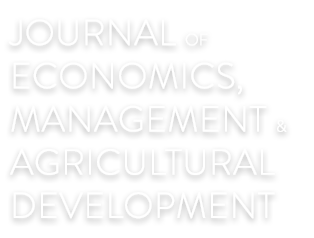Authors
ABSTRACT
This study examined the gendered aspirations of smallholder farmers and its role in promoting inclusive value chain development (IVCD) on coffee in the Philippines. The Municipalities of Kalamansig and Lebak served as the case study – the major coffee producers in Sultan Kudarat. Participatory-focused discussions were facilitated using the Pangandoy method to elicit the aspirations of women and men coffee farmers, the barriers, and coping strategies. Using the Cultural Adaptation Template as the analytical framework, results show that women and men farmers share the same major aspirations of their children becoming professionals but differ on their secondary aspirations – to have good health for the former and productive farms for the latter. Some aspirations are burdens (e.g., health, road) while some coping mechanisms also become burdens (e.g., credit, livelihood). We conclude that understanding the gendered aspirations of farmers can lead to more holistic and responsive design of interventions towards IVCD on coffee.

